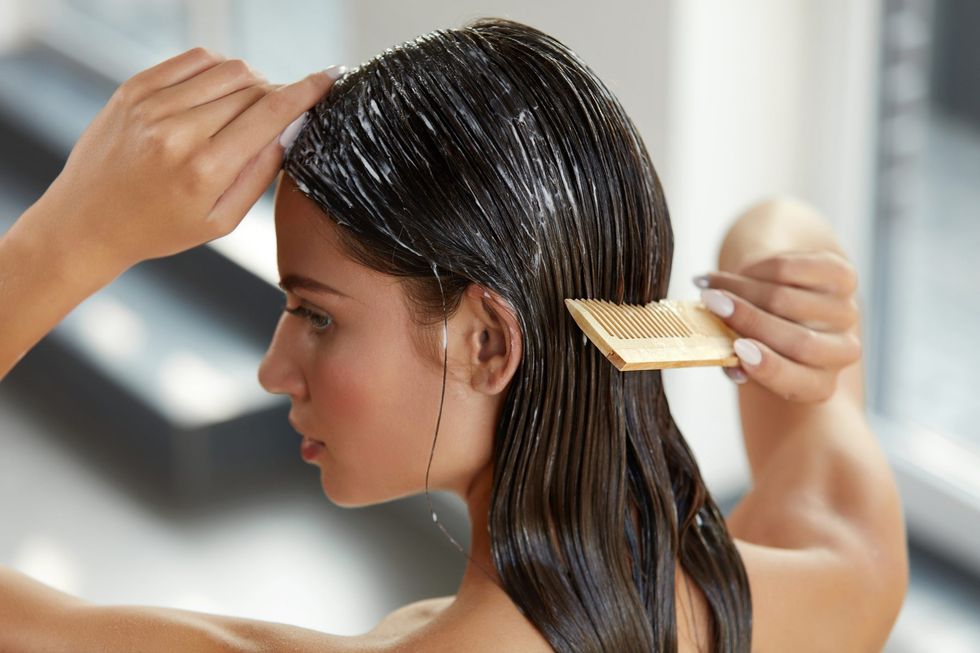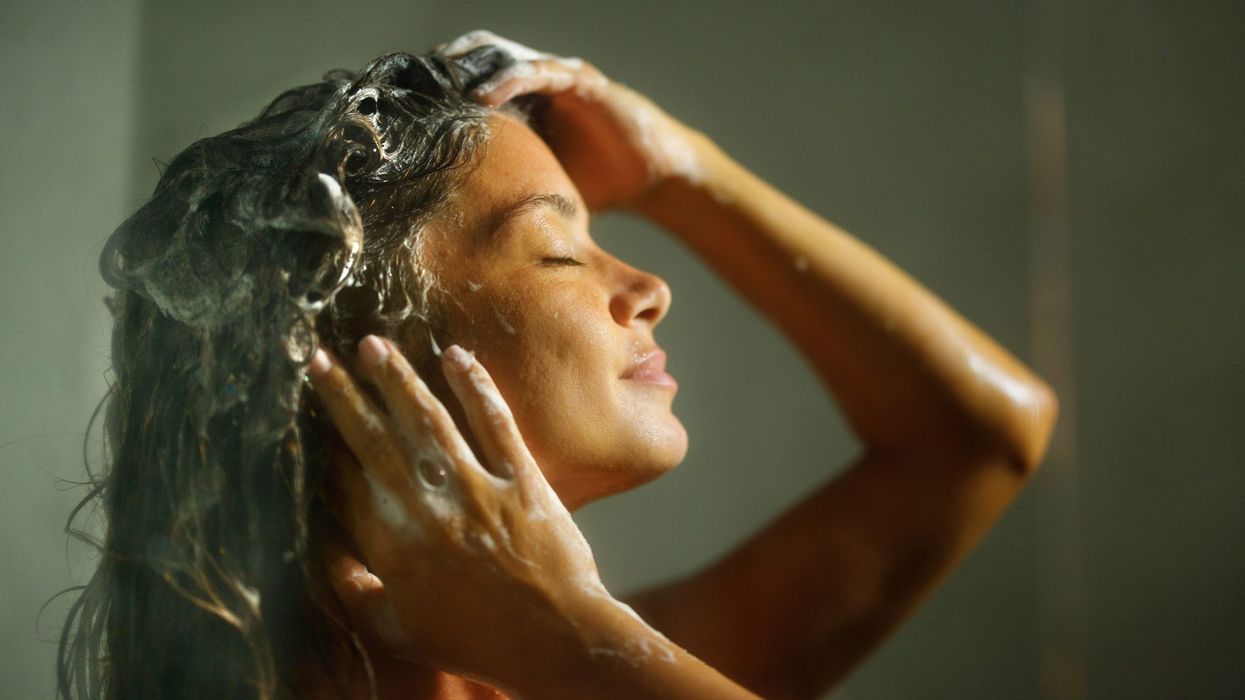WASHING hair to keep it clean, nourished, healthy and shiny may seem like a simple task, but many don’t know how to do it properly.
With damage done by styling tools, products, braiding, extensions, sun damage, dirt build-up, uneven pH balance and other factors, it is important to talk about hair washing, along with common mistakes people make.
Celebrity stylist and London hair/beauty salon owner Dimps Sanghani gave Eastern Eye the low down on correct hair washing techniques, tips, tricks and common mistakes.
Oil: Most shampoos contain harsh ingredients that can strip essential oils from your hair
strands. Applying and massaging hair oil into your scalp and hair two to three hours prior to washing can help fight this problem. You can use coconut, olive or mustard oil.
Detangle: It’s important to detangle your hair before shampooing. It is hard to do when wet, so ease any knots when the hair is dry. Also, wet hair is weak and more fragile, so can easily break. Detangle the hair by dividing it into four sections and then brushing it gently. This makes it easier to wash, but also helps stimulate blood circulation in the scalp, which subsequently reduces hair loss and prevents pores from clogging.
Rinse: Before applying shampoo and conditioner, rinse your hair properly for a minute. Soak it well with lukewarm water to help open the pores on your scalp. Make sure the water is not scalding hot, as it can damage your hair and burn your scalp. Finish your washing routine with cool water to close the cuticles again and seal in the moisture, to leave your hair sleek and shiny.
Dilute: Shampoo can contain harsh chemicals. By diluting it with water, you reduce the risk of hair damage. This will lower the shampoo concentration applied to the hair and scalp.
Selection: Shampoo selection is essential in haircare. Pick one that provides hydration, nutrition and heat protection. If you have coloured or bleached hair, go for a shampoo that provides colour protection. Breakage reduction, shedding prevention and frizz control are also factors to keep in mind along with the overall maintenance of hair, when selecting.
Massage: While shampooing, massage your head with your finger in a circular motion – from the front to back and then back to the front. Repeat for several minutes. This helps with exfoliation and stimulating the scalp.
Condition: Follow a shampoo and rinse with a conditioner. Don’t apply conditioner directly to the scalp. You can apply conditioner with the help of a comb, as this allows for an even application. Conditioner selection also plays a crucial role in haircare, so ensure that it suits your hair type and contains nourishing ingredients.
Scrub: Scalp care is important. Scrub your scalp gently in small circles. You can use your fingertips to loosen any dirt, skin flakes, residue and natural oils. After you scrub, rinse with lukewarm water. Clean your scalp regularly and avoid using strong chemicals.
Final rinse: Do a final rinse with cold water. Remove conditioner by washing your hair with cold water if possible. Rinsing with cold or normal water helps close the cuticles and seals the moisture in each strand.
Drying: Towel drying is always preferable, but never be harsh while rubbing your hair with a towel. This can cause severe damage and make your hair look dull. Try squeezing out excess water gently or leave your hair to dry on its own.
Dimple Sanghani is a London based Hair and beauty expert. Visit Tiara Organic Hair & Beauty at www.tiaraorganic.com for more
Reasons to regularly wash hair

Sweaty head:Whether it is working out or rushing around all day, you will sweat, and the
first place will be in your scalp and hair.
Hair loss:Unwashed hair can lead to hair loss. If you are experiencing severe hair fall, there are certain home remedies that may help reduce it.
Cosmetics:Make it a point to wash your hair before going to sleep. Hair cosmetics can seep into the scalp while sleeping and block the skin pores. Also, stay away from using too many cosmetics at a time. The more natural your hair products are, the better.
Scalp sebum: Many people complain about their hair getting too greasy throughout the day. Washing your hair once a day can help keep it clean and free from grease (sebum). Sebum is the natural oil secreted from the skin. Excess sebum production can cause scalp and hair issues.
What not to do
Different shampoos: Don’t use two different shampoos at a time. Find one that suits you best and stick to it. Then shampoo properly, including proper frequency.
Hot showers: Taking lots of hot showers is bad for the hair. It can make your hair coarse unattractive, and frizzy. It can steal all the moisture. Cold water is better. You can mix apple cider vinegar with cold water and rinse your hair with it. Vinegar is a great exfoliator that will remove dandruff and make your hair soft and smooth.
Not using hair masks: Use at least one hair mask twice a week to protect your hair from damage and keep it beautiful. They are great for your hair and not using them is a mistake. Also, remember to wash your hair thoroughly when you are removing the hair mask.
Skipping conditioner: Conditioner is made to be used, so don’t skip it. Remember that the conditioner needs to sit on your hair for about five minutes before you rinse it.





